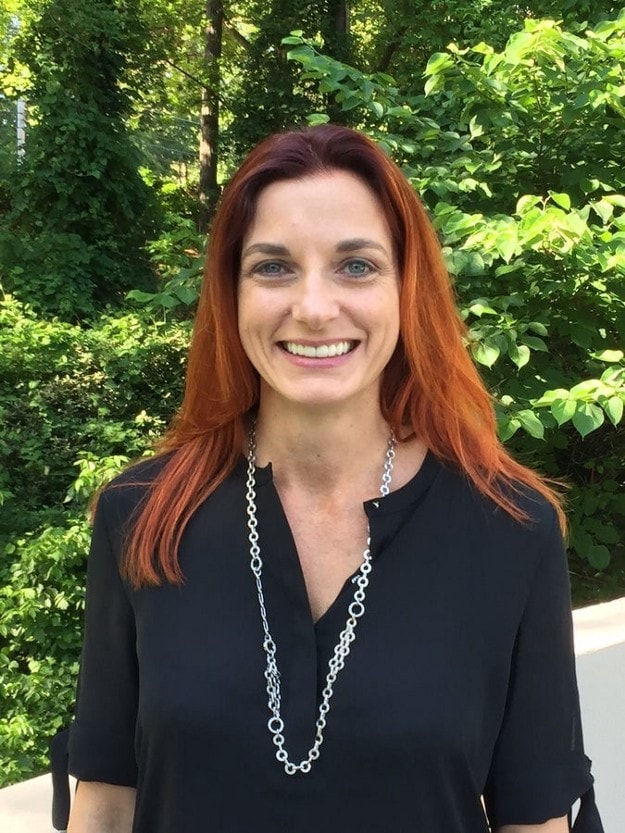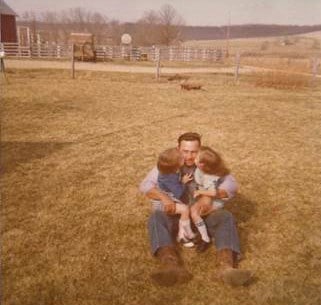Turning Heartache into Health Education
Colorectal cancer can happen to anyone. Two of our colleagues share stories of how personal connections to colorectal cancer have driven them to help others recognize the risks and catch this disease early. Together, they are Oncology Inspired.
Bayer US - March 29th, 2021

I’m a native of Philadelphia but have lived up and down the eastern seaboard. I’ve been with Bayer for about two years now and I’m really happy to be back in my hometown of Wayne, Pennsylvania. During my time here, I’ve been so lucky to hear directly from patients who have benefitted from our therapies. Every single one of those interactions is the reason I get out of bed every day. My connection with those impacted by cancer runs deep.
About eight years ago, I lost my aunt to colorectal cancer. Aunt Michelle didn’t fit the “typical” patient profile, so colonoscopies and conversations with her doctor about digestive health weren’t top-of-mind before her diagnosis.
Aunt Michelle was a huge influence in my life and the person I was closest to in our family. I looked up to her so much. I spent almost all of my weekends as a child and teenager with her, and for as long as I can remember, I wanted to look and dress just like her.
I was living in North Carolina when she was diagnosed with stage III colorectal cancer. Being in my early 20s, I didn’t have a lot of money, but I made sure to send her flowers around the time of her first chemotherapy appointment. She called me to tell me about it and how scary it was. I remember crying in my office that day, wishing there was something I could do to help.
Aunt Michelle had gone through a number of misdiagnoses. Her primary care doctor downplayed the concerns she raised, and by the time she was screened and diagnosed correctly, her cancer had already spread.
She was only 44 when she died.

I know digestive health is an uncomfortable topic but it’s one that is incredibly important. If something doesn’t feel right, speak up! And if your primary care doctor isn’t willing to listen or do a screening, get a second opinion. I would love to see a world where talking about colorectal cancer isn’t taboo or uncomfortable.
Colon cancer is such a devastating diagnosis — yet 60 percent of deaths associated with this disease could be prevented with routine cancer screenings.
My aunt was so young when she died, so please don’t think colorectal cancer only affects older adults. There is a troubling trend where younger and younger adults are being diagnosed with colorectal cancer, which has led a government task force to lower the screening age of adults to 45 years of age.
So, in honor of my aunt — and all the wonderful things that made her so special to me — I urge everyone to get screened for colorectal cancer. Know your risks and your family history for this disease. It could literally save your life.
 I grew up on a lake near Branson, Missouri, in a fairly rural area. At the time, the science linkages between lifestyle and cancer were largely focused on smoking, with less information about the importance of a healthy diet and regular exercise. It certainly wasn’t something that my family and I thought much about.
I grew up on a lake near Branson, Missouri, in a fairly rural area. At the time, the science linkages between lifestyle and cancer were largely focused on smoking, with less information about the importance of a healthy diet and regular exercise. It certainly wasn’t something that my family and I thought much about.
I think that I have always been an advocate for patients. It began with helping my father, who was managing heart disease and high blood pressure. As a young girl, I remember seeing him taking medicines and often having to take breaks from working in the yard. Then, as I neared the end of my freshman year of high school, my dad was diagnosed with stage IV colorectal cancer. It was a complete shock, and while I’m certain he was having symptoms far before his diagnosis, it was not something that he’d talked about or had ever seen a doctor for.
My dad passed away in November 1987, almost exactly six months after his diagnosis.
Today, we know so much more about risk factors of colorectal cancer, the importance of early detection and education about available and investigational treatment options. However, to this day, so many Americans are negatively impacted by health and access disparities that create barriers to screenings and high-quality care.
When I think back now, my father had so many risk factors, including cigarette smoking, a high fat / high sodium diet and a sedentary lifestyle, that it’s no surprise he had health issues. But even if we’d known more about those risk factors and had the education and options that we have now, my father would have still faced the barriers to care that so many Americans experience today.

This understanding has been one of the greatest influences on my passion for patient advocacy. It has led to a 25-year career working with nonprofit and public health organizations, including 18 of those years with the American Cancer Society to advance programs that enhance access, decrease disparities, improve quality of life and provide support for patients, survivors, caregivers and their families.
And now every day at Bayer, I strive to do my part to help people have access to education, screenings, and treatment, regardless of where they live, what type of education they may have, what their race, ethnicity, gender, or sexual preferences are and what their economic or insurance status might be.

It is so important that people understand their personal risk factors for and family history of colorectal cancer. People can reduce their risk by adopting a healthy lifestyle and getting regular screenings for colorectal cancer. Then, following a diagnosis, it’s essential that people get the right treatment. Patients should feel empowered to talk with their health care providers and to identify a treatment that’s right for them. Biomarker testing can help health care providers and patients identify the most appropriate treatment for their tumor type.
We all have a role to play in recognizing our own risk factors, looking at barriers to testing and care, and using the incredible tools available to mobilize against this disease.
For more information, visit the below Bayer resources:
References
- He J, Efron JE. Screening for Colorectal Cancer. Adv Surg. https://pubmed.ncbi.nlm.nih.gov/21954677/#:~:text=March%20is%20national%20colorectal%20cancer,or%20older%20were%20screened%20routinely. Accessed March 2021.
- Siegel RL, Fedewa SA, Anderson WF, Miller KD, Ma J, Rosenberg PS, Jemal A. Colorectal Cancer Incidence Patterns in the United States, 1974–2013, JNCI: Journal of the National Cancer Institute. https://doi.org/10.1093/jnci/djw322. Accessed March 2021
- Colorectal Cancer: Screening. U.S. Preventative Services Task Force. https://uspreventiveservicestaskforce.org/uspstf/draft-recommendation/colorectal-cancer-screening3. Accessed March 2021.